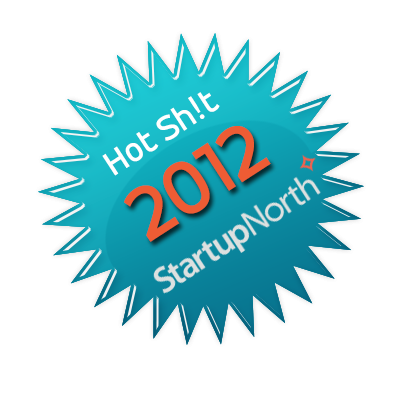Editor’s Note: This is a cross post from Zak Homuth (LinkedIn, @zakhomuth) originally published August 7, 2012.

Image by John Cavacas link
I’ve got bad news. And I don’t really know a better way to say it, so I’m just going to tear the bandaid off, one motion, no fucking around. Here goes…
Toronto is broken.
Ugly right? We’re the 4th most active startup ecosystem in the world. We’re the largest ecosystem in Canada. And were the best non-US city for funding.
But there are some very serious problems under the covers.
Toronto is a young startup ecosystem, largely because it wasn’t always possible to run a startup here. This has 2 effects as far as I can tell. The first is that most of the entrepreneurs here in Toronto are very young, the average age is definitely lower than the Startup Genome Project average of 33. And the second is that almost all of us aren’t tied to Toronto. We have all been somewhere else, worked somewhere else, and got money somewhere else.
Weak Founder Network
Being young & unconstrained means we don’t brag about or lean on our native networks in Toronto. We brag about our investors and mentors in the valley (like we all haven’t been), we try to impress our Toronto network instead of learning from them, and we don’t trust our peers here to help us succeed. Its ok. And its pretty normal from what I’ve seen in other fledgling startup communities.
BUT until we can trust and work with our peers here in Toronto the community will continue to flounder. We will continue to leave (not necessarily a bad thing). We will continue to NEED other networks. And getting together will continue to be about bragging instead of helping and learning.
Small Ideas
I’m not sure if this is because the ecosystem is so young. Or because our service providers think they run startups. Or because we’re a largely Canadian club. But our ideas on average aren’t world changing. We dream of things that already exist. We dream of parts of other company’s visions. We dream of features. We dream of being an Instagram for Instagram rather than Facebook, Go instead of Google, CRM instead of Salesforce.
This is a theme across the startup galaxy right now. But we aren’t helping. Why not be the place big ideas come from? Why not be known for dreaming bigger? Lets be frighteningly ambitious. Lets change something. Fuck the $25MM Google acquisition. Can we please do a little bit more than building another feature for Salesforce?
Crossing The Scale Gap
We have almost zero entrepreneurs and early employees experienced at scaling. It might even be the real reason for the pre-scale acquisitions lately. We can’t cross the gap. Who are you going to hire to scale your marketing? What about sales & bd? Or support? Or product management? Have they ever done it at a startup before? Better still, will they – without a question – give you an unfair advantage because of how awesome and repeatable they are at it? I doubt the list is any longer than a few names for each – and I bet most of them are running their own startups or have retired.
There is a huge void here that doesn’t exist in SF or even NYC. We have very, very few startups that have achieved scale, cycled, and produced experienced founders or employees that want to go back out and do it again. This is why so many of our startups open offices in San Francisco or Palo Alto. Will you? Does it bother you that you have to split up your team, or move? You need to move if thats how you win – but could we ever help each other to do it here at scale?
Mentorship
Its pretty weak in Toronto. Its a side effect of the same lack of experience. The same lack of cycling. And there just isn’t the same kind of culture of free giving that exists in the valley. We have this sort of East Coast I work to get paid mentality that doesn’t jive so well with mentorship. All that being said I can’t fix this. This is a huge problem that has cultural roots, a lack of raw material, and well all be dead (or at least our startups will be) by the time it gets fixed.
My advice: Get a mentor in the valley, and figure out how to use skype.
Capital
Don’t waste your time raising in Toronto. If you can and do raise elsewhere Toronto will pay attention. If you can’t, they still wont. And the best part is you don’t need permission to be in Toronto anymore if this is the right place to run your business.
My advice: Raise the money where you can, run your business where you need to, and get the fuck back to work.
But…
There still are some pretty great things about Toronto. Hell, I haven’t left yet. The talent here is A+, the money goes further, the government helps, its one of the biggest economies in North America (ie. fuck loads of customers), and you can build a first class startup culture of first class talent that has worked at startups in the valley and abroad.
So lets fix the broken parts. I think its still worth it.
Too much words? In picture form!
Problems I’m trying to fix:
- Build a stronger founder network
- Encourage and enable bigger ideas
- Fill-in or otherwise enable companies to cross the scale talent gap
Things I’m NOT trying to fix:
- More and better mentorship
- More and better capital
About Me
Upverter is my 3rd startup. I dropped out of highschool, and then university, both times to run startups. I’ve worked in Ottawa, Waterloo, Stuttgart, Bangalore, and Mountain View. I have never lived in Toronto before, so it’s a first for me, but we’re here because it’s where our team wanted to be. And I’m not ok sitting back and letting this opportunity – to make Toronto kick more ass – pass me by.
Wanna join the cause?
Shoot me an email ([email protected])













